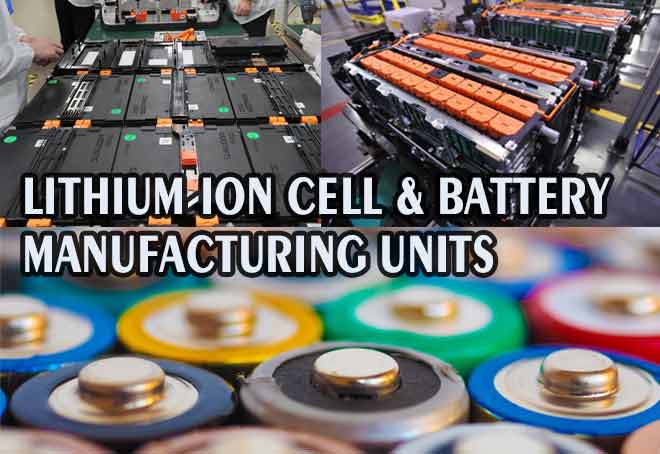India needs to invest Rs 33,750 cr to meet manufacturing target for Lithium-ion battery: CEEW study
Updated: Feb 22, 2023 03:51:13pm

India needs to invest Rs 33,750 cr to meet manufacturing target for Lithium-ion battery: CEEW study
New Delhi, Feb 22 (KNN) An independent study by the Council on Energy, Environment, and Water (CEEW) released on February 22 highlights that India needs to invest Rs 33,750 crore to achieve its target of setting up 50 GWh of lithium-ion cell and battery manufacturing plants.
The country requires up to 903 GWh of energy storage to decarbonise its mobility and power sectors by 2030, and lithium-ion batteries will meet the majority of this demand,” it said.
The CEEW study titled ‘How can India indigenise lithium-ion battery manufacturing?’ calculates the material and financial requirements and offers a blueprint for the domestic strategy as India’s demand is expected to increase significantly.
Rishabh Jain, Senior Programme Lead at CEEW, notes that "This year's Budget has shown India's interest in addressing these challenges by eliminating duties on battery manufacturing equipment and providing viability gap funding for battery projects."
“However, to scale up domestic lithium-ion manufacturing, India should increase its R&D investments, focus on battery cell component manufacturing and reducing material costs, and support recycling to reduce the need for new materials,” he said.
CEEW estimates that India needs 969-1,452 kilotonnes of anode, cathode, and electrolyte material between 2022 and 2030 to meet its battery demand.
It notes that new battery manufacturing facilities have a minimum capacity of 5 GWh. The total cost, including land acquisition, factory floor space, warehousing, and connecting utilities, could lie between USD 325–450 million (2,437 to Rs 3,375 crore) for each 5 GWh facility. Furthermore, these factories will be energy intensive, with a 5 GWh production facility consuming about 250 GWh (250 MU) annually.
The study recommends focusing on the strategic sourcing of critical minerals and pushing for research, development, and demonstration in all technologies to retain competitiveness.
Dhruv Warrior, Research Analyst at CEEW, notes that "Currently, India is import-dependent, but the government has already started mobilizing resources to indigenize battery cell manufacturing. The focus on mineral processing and component manufacturing are, however, limited.”
“India needs to develop its capabilities to build skills, technology know-how, and infrastructure to indigenize this part of the value chain too,” he added. (KNN Bureau)













